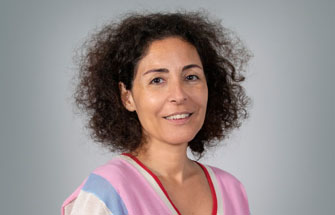Union Bancaire Privée (UBP) is a pure-play private bank specialising in wealth management for private and institutional clients. Sérène El Masri was appointed Site Manager of UBP’s Monaco branch one year ago. We spoke to her about her impressions of Monaco as a financial centre.
In your view, what are the main advantages of Monaco’s financial centre?
Firstly, I would say its tremendous adaptability and the public authorities’ level of responsiveness. We have seen a clear indication of this in the way the current crisis has been managed. The rapid adaptations made in the fields of employment, financial and fiscal regulation, as well as corporate law, have allowed all sectors to receive tangible support. Business continuity within the banking industry has also been assured.
I would also highlight the role played by the AMAF (Monaco Association for Financial Activities), which is fairly unique. The AMAF is not just an association representing Monaco’s financial institutions. It is also pro-active in proposing regulatory change, ensuring constant dialogue between the financial sector and the public authorities.
Finally, I would mention the clients of Monaco’s banks, who are mainly foreign citizens living in the Principality. They broadly fall into two categories. Firstly, the “traditional” clients whose main objective is to preserve their wealth; secondly, the more “transactional” clients, who are well versed in the foreign-exchange market and in sophisticated instruments such as derivatives and structured products. What the two groups have in common, and this is where UBP has a crucial role to play, is their level of expectation in terms of wealth engineering, financing solutions and expertise in specific areas, such as private markets. Managing these two types of clients simultaneously is what makes our job fascinating.
Your plan was to roll out UBP’s Private Equity offering and grow its Advisory business in Monaco. Have you been able to do that?
At UBP, we focus mainly on managing the wealth and assets of private and institutional clients. Our qualified investors are showing increasing demand for solutions that are less correlated with traditional asset classes, and so we have developed solutions in the unlisted space for several years now. Today, our Direct Investments Group allows us to cover the private equity, private debt, real estate and infrastructure segments.
To cite just a few examples, the partnership forged with Partners Group in 2017 has allowed us to expand our private equity offering. We also work with Cambridge Innovation Capital to address client demand for venture capital investments in the fields of medtech, digital health and genomics. We have offered innovative solutions in the private debt area since our acquisition of ACPI in 2019. We also have regular deal flow in real estate ¬– I would highlight our exclusive collaboration with one of the leading managers of real estate let to US government agencies.
Our Advisory mandates make up a constantly growing share of our business. Our clients appreciate receiving investment ideas and sector analyses directly from their dedicated specialist. But we are also seeing increased interest in discretionary asset management, particularly from clients wanting to invest in specific areas such as ESG-compliant companies, artificial intelligence, healthcare or hedge funds.
Indeed, UBP has seen assets under management grow constantly since 2008 to a record level at the end of 2019. What are the reasons behind this performance? Can the same development strategy be applied in Monaco?
There are four main reasons behind our performance. Firstly, we are able to adjust quickly to constantly changing client demand, as we have done in the area of private placements. Our acquisition policy has naturally played a part, particularly the Coutts International purchase in 2015, which increased our footprint in Asia, and, more recently, the ACPI and Banque Carnegie deals in London and Luxembourg. We are also not ruling out acquisition opportunities in Monaco! Thirdly, the recruitment of talent in Asia, the Middle East and London has also contributed to our success. In Monaco, we recruited more than 10 Relationship Managers in 2019 and are still on the look-out for talent. Finally, we continue to invest heavily in digital technologies; in particular, the latter have helped us ensure business continuity in the current situation.
In February, Monaco’s National Council tabled a new bill to strengthen efforts to combat money laundering, terrorist financing and corruption. What is your opinion on this?
It’s a necessity. Terrorism is a reality and enhanced collaboration to prevent its financing is a duty, particularly with the development of cryptocurrencies. Regulation needs to evolve to address such rapidly changing financing techniques. An important way of combating the latter is through greater co-operation between governments, particularly their financial intelligence units. This is one of the objectives targeted by the EU’s Fifth Anti-Money Laundering Directive and by Monaco’s bill.






